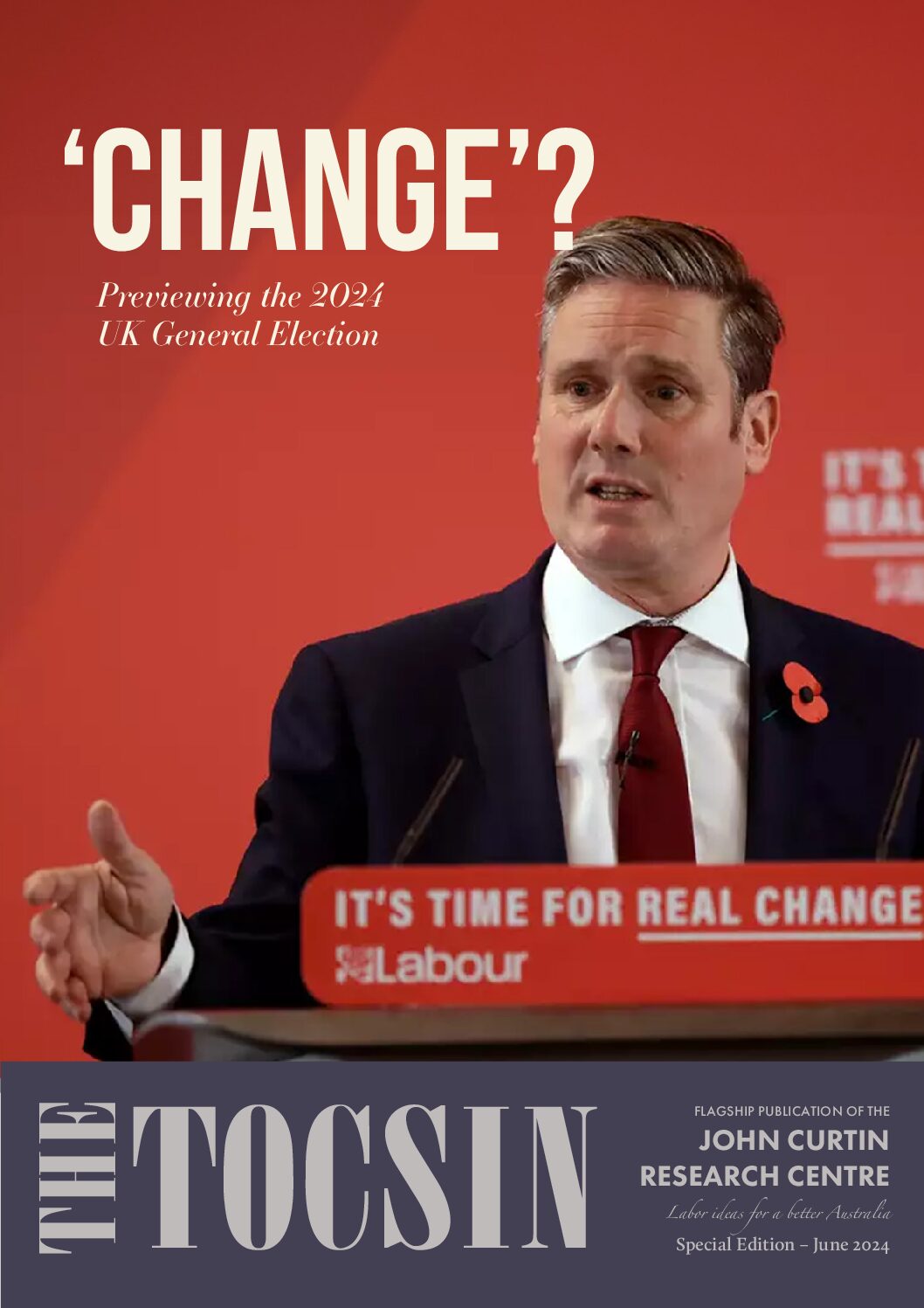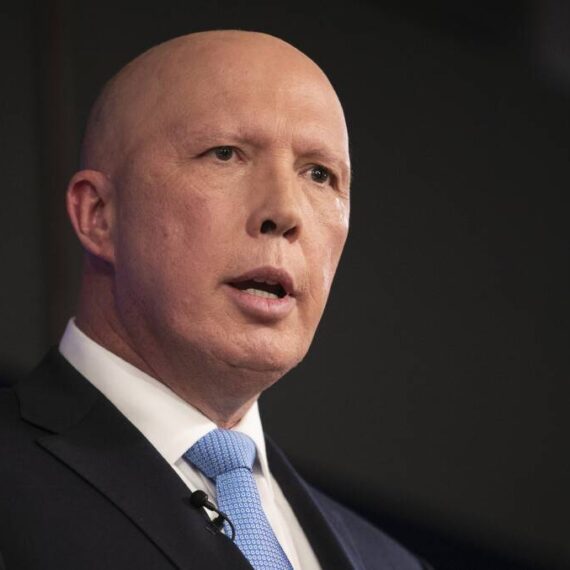Less than two years into its term, Labor has been warned the party risks losing a generation of young voters.
“It’s the economy, stupid! And if we in Labor continue to think these young voters are the problem — implicitly stupid — they will deservedly punish us,” writes Nick Dyrenfurth, author of a new report by Labor-aligned think tank the John Curtin Research Centre.
The threat of voter punishment is often thought to come from the party’s left flank — namely, the Greens — but Dyrenfurth says there’s another concern: young people flocking to right-wing populists.
“[Many] are angry at, and alienated from, the economic system which they feel is gamed against them, and progressive cultural obsessions which they feel ignore their primary needs,” he writes.
In other words, Labor and Australia generally are not immune from populist surges we’ve seen around the world in recent years.
Political scientists often attribute populism’s rise to economic decline and social changes, like immigration, stoking a feeling of loss.
But how a person perceives that loss is complex; gender, age, and a country’s history are vital in defining which populists they turn to.
So why do some countries shift left when others shift right, why are young men and women voting differently, and what could populism in Australia look like?
Shock results spark talk of a global shift to the right
Two recent shock results last month, on opposite sides of the world, prompted a new round of claims about a global shift to the right.
An election in Argentina swept political outsider and hard-right populist Javier Milei into office. Support from nearly 70 per cent of voters aged 29 or under delivered Milei an overall vote above 55 per cent.
Days later, young people in the Netherlands were key to electing Geert Wilders — who once declared “I hate Islam” — after a campaign dominated by debate on immigration.
The Dutch result continued a trend across Europe; in 2022, young Italians flocked to Georgia Meloni, whose party has fascist roots, the same year the far-right Sweden Democrats seized on immigration to become the country’s largest party.
Neither Milei nor Wilders holds views typically associated with young people.
Milei is an unabashed libertarian, has decried climate change as a “socialist lie”, promised to privatise health care, end free education, and believes compulsory sex education destroys the traditional family.
Argentina, which was economically comparable to Australia a century ago, now bears the world’s largest IMF debt and roughly 60 per cent of youths live below the poverty line.
David Smith, associate professor at the United States Studies Centre, says young people opting for Milei was a sign they were “pretty desperate to try something else” after decades of economic failure.
“I suspect for a lot of Argentines, their view is it just shouldn’t be this way, that they weren’t destined to be a poor country,” he says.
Why young men are susceptible to right-wing populism
A global economy wracked by inflation, and housing crises in many countries, partially accounts for the ongoing far-right surge.
But economic angst is only one part of the puzzle, and it doesn’t explain why men in particular are more likely to vote for far-right figures.
Smith notes that unemployment is comparatively low in the US, but many of the jobs available — particularly to uneducated young men — are “unfulfilling”.
That’s where lost social status — the feeling of losing one’s “dominant place” in society — comes in.
“Populism isn’t just a response to economic circumstances, it’s how those circumstances are interpreted. When there’s a sense of betrayal, a sense of having what is yours being given away to someone else … [you’re] a lot more susceptible to it,” Smith says.
“Many young men … want to go back to something where they believed that they had much more status, and much more of a future in the world.”
The changing social order, with women and second-generation immigrants achieving positions of power, creates a fertile breeding ground for right-wing populists to exploit.
Smith says immigration becomes a strong talking point in populist discourse, creating a sense of being “squeezed” from both sides: “treacherous elites milking everyone” and cheap foreign labour they use to “prop up” their power.
That sentiment also thrives in male-oriented subcultures, with Smith saying major podcasters — like Joe Rogan and Jordan Peterson — “are aimed at … bringing [young men] into the populist fold”.
But that leaves women more immune, even when suffering the same economic disruptions.
“In relative terms, more secular-minded women aren’t looking back to some Golden Age and thinking: ‘It was a lot better back then’,” Smith says.
When women are wooed by the far-right, as they have been in the US, their motivations are often religious.
“A lot of religiously devout women feel that their values are under assault. And when those values are under assault, society is under assault, the foundations are being torn down,” Smith says.
How colonialism impacts populism
Political currents in Ireland and Northern Ireland seem to be flowing left, even though headlines were dominated recently by a race riot in Dublin.
Democratic socialists Sinn Fein, historically the political outgrowth of the Irish Republican Army (IRA), have made large inroads in both countries.
The rise of a party with links to the IRA is particularly notable, given many voters have living memories of bloodshed in Northern Ireland caused by fighting Unionists and Republicans — known as the Troubles.
Sinn Fein won the 2022 Northern Ireland elections, before dominating vital council elections in a result likened to a “tsunami” by the BBC this year.
Across the border in the Republic of Ireland, Sinn Fein enjoys a strong lead driven by support from young people, which is at a level almost double that of the two major parties.
The political platform of party leader, Mary Lou McDonald, targets economic angst.
While Irish republicanism — the goal of uniting the island and removing UK governance in Northern Ireland — remains central to Sinn Fein, McDonald has declared housing her “number one priority” as rents in Ireland skyrocket.
So why do struggling Irish voters seem to be bucking the rightward trend?
Smith believes the sense of sovereignty being under threat is at the core of populism.
“The question is: where does the threat come from? Countries like Ireland, which have this long history of colonialism and the interference of a huge foreign power, [are] much more susceptible to left-wing populism,” he says.
The motives are different for right-wing populism.
“[Populists in] countries that have been in the historically dominant position … believe that their own elites have given away this position of power, and these countries that they used to dominate are taking their revenge through immigration.”
Looking at historically dominant countries, signs of that rightward trend are obvious.
Donald Trump was elected in a shock 2016 result. Months earlier, Britain stunned observers by voting to leave the European Union after a campaign laced with anti-immigration rhetoric. Far-right populist Marine Le Pen reached the final run-off for the French presidency the next year.
Is Australia less susceptible to right-wing populism?
While accepting many Australians feel angry about a declining blue-collar workforce and progressive social changes, Smith says the country’s lack of historical colonial power “mutes” populism here.
“It doesn’t remove it completely, but it’s going to be a different kind of populism. It’s a somewhat more modest version of populism, with somewhat more modest aims,” he says.
Cost-of-living pressures are biting here, and young people struggle to afford property.
Labor and the Coalition have suffered consistently declining primary votes, with young people in particular delivering the Greens their best election result last year.
But on the right, Smith says populist parties are restrained by the Coalition “absorbing” their messages when needed, parroting a feeling that social changes had “gone too far”.
He says Australia does not have the same pressures on the border seen in the US and parts of Europe, and its mainstream conservative party has successfully spoken to the angst that does exist.
“John Howard was, in many ways, a pretty effective populist. Tony Abbott was a less effective populist, but that was definitely a role that he tried to play,” he says.
“I think it’s a role that Peter Dutton tries to play in a lot of ways as well. But it’s not a sense of threatening the establishment, because all of these people are themselves establishment figures.”
See Nick Dyrenfurth’s mention in the original article on SBS News.
Nick Dyrenfurth is Executive Director of the John Curtin Research Centre





